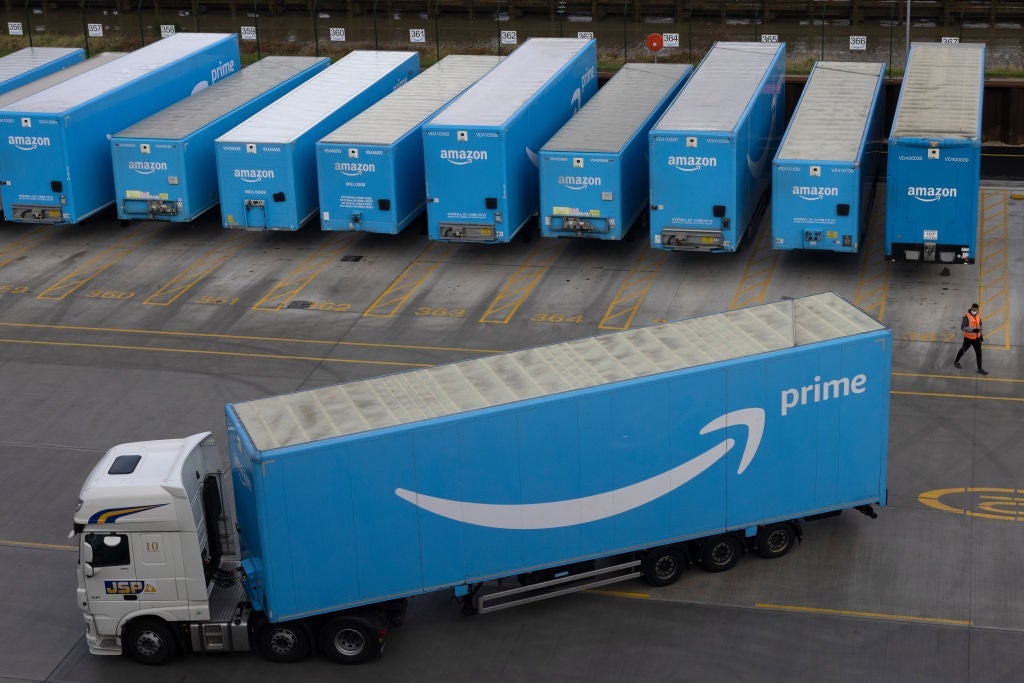
The beginning of the Covid-19 pandemic triggered a massive shift in the global business landscape. Key sectors including tourism, hospitality and energy were decimated overnight, while sales in industries such as technology, pharmaceuticals and healthcare skyrocketed.
Using GlobalData’s Multinational Companies database, we reviewed more than 6,000 of the world’s leading businesses to find out which thrived and which faltered during this time. For this analysis, we focused on companies that generated more than $1bn in revenue in 2019 and assessed which saw the largest rise in sales in 2020 and which experienced the largest fall.
E-commerce, tech and financial services companies prospered
Before Covid-19 hit, bricks-and-mortar retailers were already struggling to compete with online stores that could offer lower prices and quick deliveries. When national lockdowns forced non-essential shops to close, e-commerce companies reaped the rewards of the drastic shift to online shopping.
This is certainly true for Amazon, which recorded the largest nominal increase in revenue of all companies analysed. It experienced explosive growth in 2020, with sales increasing by $106bn from 2019. Revenue grew across all geographic segments, jumping by 36% in the US, 51% in the UK and 33% in Germany.
Sales also surged across most of the company’s product categories, with third-party seller services up by 50%, online stores by 40% and Amazon Web Services by 30%. Physical store sales were the only area that declined, falling by 6%.
How well do you really know your competitors?
Access the most comprehensive Company Profiles on the market, powered by GlobalData. Save hours of research. Gain competitive edge.

Thank you!
Your download email will arrive shortly
Not ready to buy yet? Download a free sample
We are confident about the unique quality of our Company Profiles. However, we want you to make the most beneficial decision for your business, so we offer a free sample that you can download by submitting the below form
By GlobalDataTwo other e-commerce companies also made the top 20. China-based JD.com (sixth) and Alibaba Group (tenth) benefitted enormously from the surge in online shopping, growing by $25bn and $20bn, respectively.
Finland-based Fortum, a state-owned energy company, recorded the second-largest nominal increase in revenue. Sales grew by $51bn, largely due to Fortum becoming the majority owner of Germany-based energy supply company Uniper in March 2020.
Missouri-based healthcare insurance provider Centene ranked third. The company recorded a $37bn increase in sales in 2020, mainly as a result of its acquisition of Florida-based WellCare in January of the same year.
The tech industry boomed in the fallout from Covid-19. Five of the top 20 companies by nominal increase in revenue were in the technology and communications sector.
Germany-based Deutsche Telekom saw a $27bn increase in sales. This can partly be attributed to its subsidiary T-Mobile US’s merger with Kansas-based Sprint.
US tech giants Alphabet, Microsoft and Facebook profited hugely from the push to digital work and socialising, with sales increasing by $21bn, $17bn and $15bn, respectively. China-based Tencent also saw revenues grow by $16bn.
In addition, two major pharmaceutical and healthcare companies made the top 20. Texas-based medical supplies company McKesson recorded a $17bn increase in sales, while New York-based biopharmaceutical company Bristol-Myers Squibb saw $16bn in growth.
Fortum sales soar in 2020
Fortum experienced the highest percentage growth in revenue in 2020. It is the only business to appear in both the top 20 by nominal increase and the top 20 by percentage increase rankings. The Finnish clean energy company saw sales grow by 800% in 2020.
Michigan-based consumer lender Rocket Companies placed second, with sales growing by 204% in 2020 due to a nationwide surge in mortgage refinancing. All the company’s business segments grew during the pandemic, with direct-to-consumer sales up by 182% and its partner network up by 433%.
China-based agriculture company Muyuan Foods recorded the third-largest percentage increase in sales in 2020, growing by 178%. The company profited from a 140% increase in pig prices during 2020 following an outbreak of African swine fever.
Three leisure and arts companies also made the top 20. Meal kit giant HelloFresh and online food delivery service Delivery Hero experienced a huge spike in demand during the pandemic and sales grew by 107% and 100%, respectively.
Revenue for Ireland-based bookmaking company Flutter Entertainment increased by 106% in 2020, following its acquisition of Canadian online gambling company The Stars Group.
In addition, financial services and consumer goods companies fared particularly well, accounting for three of the top 20 companies each.
Oil and gas companies among worst affected by Covid-19
Thirteen of the top 20 companies by nominal decreases in revenue in 2020 were in the oil and gas sector. The outbreak of Covid-19 began at a time when oil and gas prices were already weak. The pandemic further exacerbated this issue, with economic disruptions and lockdowns leading to reduced production and mobility worldwide. As a result, global demand for oil dropped and prices slumped dramatically.
Among the biggest losers were Netherlands-based Royal Dutch Shell, whose sales fell by $164bn, UK-based BP, which experienced a $117bn loss, and Saudi Arabian Oil, whose revenue dropped by $100bn.
However, this trend has since reversed. The reopening of the global economy had already begun to increase oil and gas prices from their pandemic lows, but the Russian invasion of Ukraine has caused them to surge even further. Russia has been hit by crippling sanctions, severely limiting its flow of oil. As global supply has declined, this has led to a massive spike in global prices.
The transport and logistics sector also suffered dramatically during 2020 with international travel grinding to a halt almost overnight. Three airlines felt substantial losses, with Delta Air Lines’ sales contracting by $30bn, American Airlines by $28.4bn and United Airlines by $27.9bn.
In addition, Swiss commodity trading and mining company Glencore saw sales drop by $73bn, reflecting weaker coal prices. Meanwhile, automotive giant Ford experienced a $29bn decline in revenue due to factory shutdowns and supply chain disruptions.
Leisure and arts sector suffers dramatic decline in 2020
China-based cement manufacturer Xishui Strong Year was heavily impacted by the pandemic, with sales dropping by 89% in 2020. Revenues fell across many business segments, including its real estate operations, which contracted by 64%.
Ohio-based amusement park company Cedar Fair recorded a dramatic 88% drop in revenue in 2020. The company was forced to close its parks in March 2020 and resumed partial operations at ten of its 13 properties, beginning in mid-June. As a result, the company had a total of 487 operating days in 2020, compared with 2,224 in 2019.
New York-based Macquarie Infrastructure, which invests in a diversified group of infrastructure businesses, saw revenues sink by 85% in 2020. Covid-19 heavily impacted the company’s operations, particularly its subsidiary Atlantic Aviation, which provides aircraft ground handling and corporate flight support services.
Leisure and arts companies were among the hardest hit in 2020 and accounted for eight of the top 20 businesses that suffered the biggest percentage drops in sales. All of these companies were directly affected by lockdown restrictions, including movie theatre companies Cineworld, Cinemark and Cineplex, casino operators Las Vegas Sands and Galaxy Entertainment, amusement park corporation Six Flags Entertainment, and cruise giant Carnival.
With vaccination programmes implemented across all the home countries of these companies, experts were optimistic that the global economy was on the road to recovery in 2021. The 2022 World Economic Situation and Prospects report from the UN Department of Economic and Social Affairs stated that global output grew by 5.5% in 2021 due to increased consumer spending and trade.
However, the threat of new Covid-19 variants, persistent supply chain disruptions and rising inflation may stall global economic growth. In addition, Russia’s invasion of Ukraine will have lasting economic consequences worldwide.






